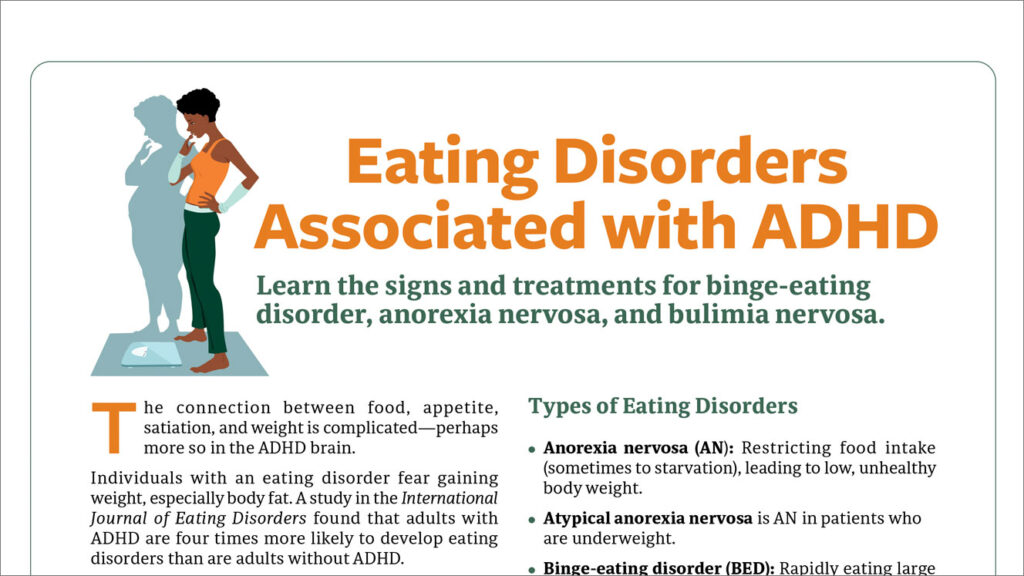Eating Disorders Linked to ADHD
Read on for more facts and information regarding eating disorders linked to ADHD, plus get more strategies from ADDitude.

The connection between food, appetite, satiation, and weight is complicated — perhaps more so in the ADHD brain.
Individuals with an eating disorder fear gaining weight, especially in the form of body fat. According to research published in the International Journal of Eating Disorders, adults with ADHD are four times more likely to develop eating disorders than are people without ADHD.1
Eating disorders are serious — but treatable — conditions. Treatment generally includes psychotherapy, medications, nutritional counseling, and medical monitoring. Adults with ADHD and an eating disorder are best served by a medical professional who understands both conditions. For teen-specific treatment guidance, see additu.de/teenseatingdisorders.
In this download, you will learn the following:
What types of eating disorders are associated with ADHD
Symptoms of anorexia nervosa (AN)
Symptoms of binge-eating disorder
Symptoms of bulimia
The difference between AN and atypical anorexia nervosa
Signs of eating disorders
Information on where to get support, resources, and treatment options
Learn more about the eating disorders tied to ADHD here: additu.de/eating-disorders/.
View Article Sources
1 Nazar, B. P., Bernardes, C., Peachey, G., Sergeant, J., Mattos, P. & Treasure, J. (2016). The risk of eating disorders comorbid with attention-deficit/hyperactivity disorder: A systematic review and meta-analysis. Int J Eat Disord 49, 1045-1057.https://doi.org/10.1002/eat.22643
Eating Disorders Linked to ADHD
Read on for more facts and information regarding eating disorders linked to ADHD, plus get more strategies from ADDitude.

